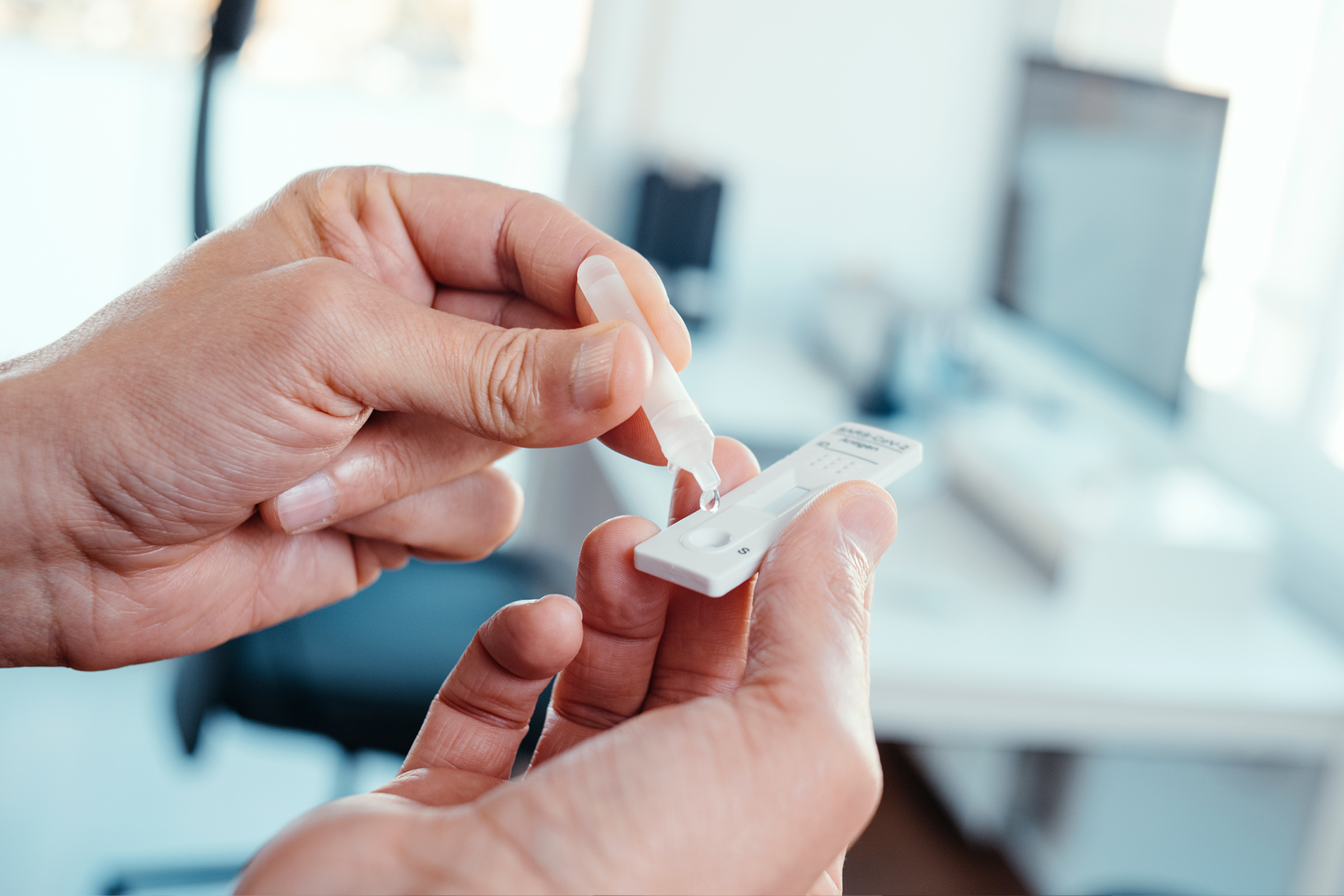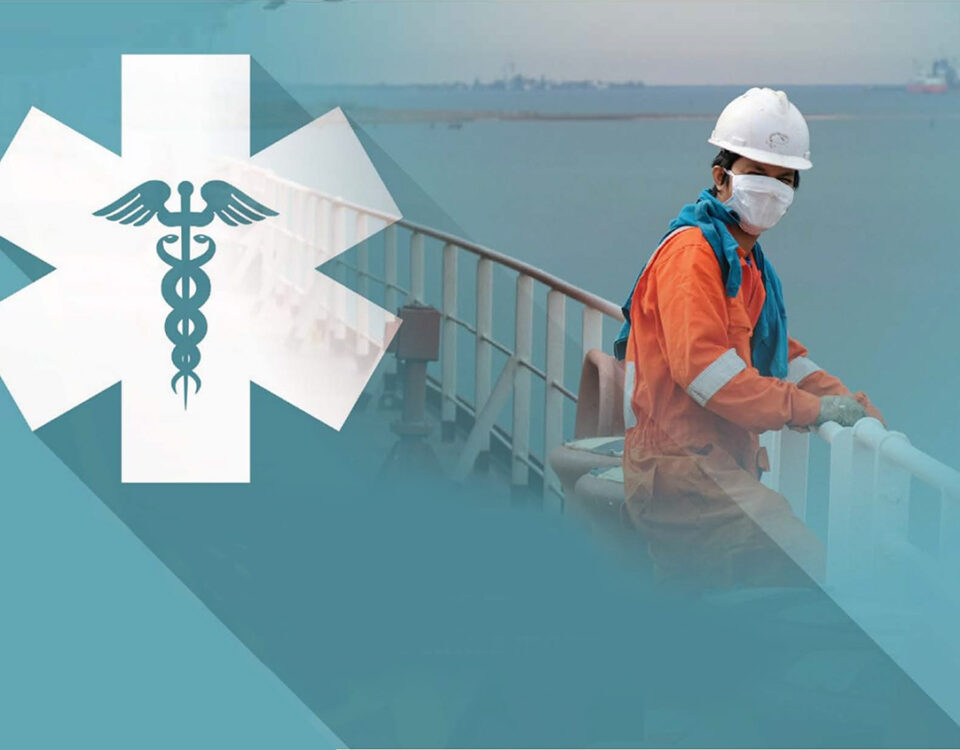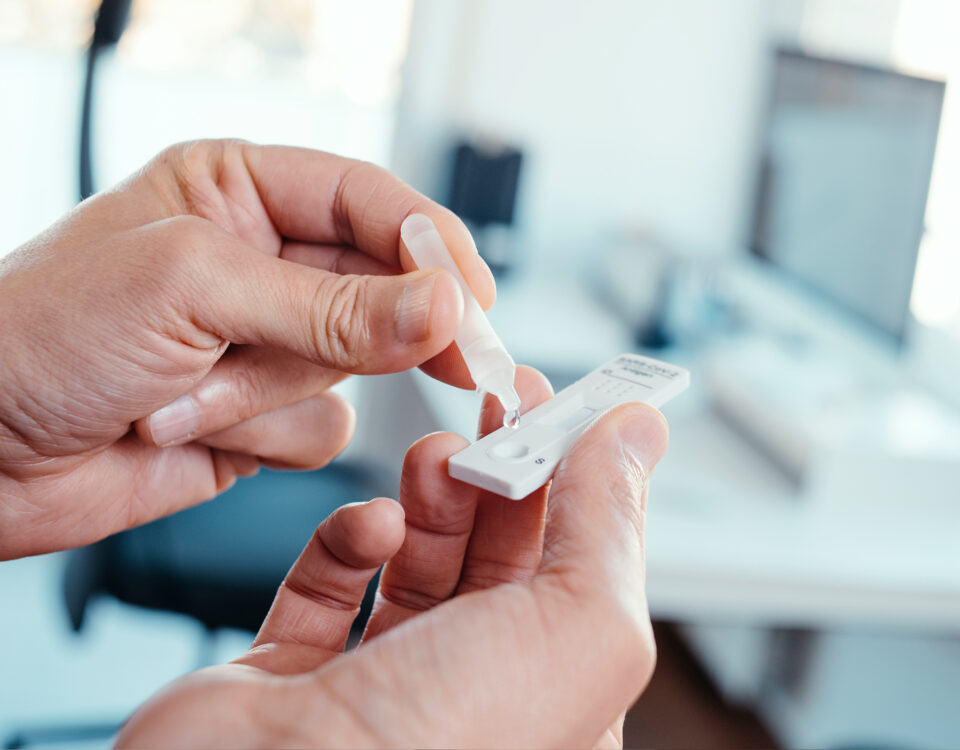
Port Medical Management Introduces Mobile App for Remote COVID Testing
March 15, 2023
Tending to the health care needs of sailors far from home
Medicine: Company simplifies treatment for seafarers at port
Sarah Scully
Dec. 2, 2015 | Updated: Dec. 4, 2015 11:30 p.m.
Sushant Jadhav winced as the needle sank into his arm. He was standing in a treatment room at Bayside Urgent Care in Pasadena, where he and eight other members from the JBU Opal chemical tanker crew had lined up for chickenpox and shingles vaccines.
The crew lived in close quarters while at sea, and two members had already contracted shingles. Without the vaccine, the healthy Indian sailors would have risked getting sick from the same virus but far from shore and far from medical treatment.
Their vaccines were facilitated by Port Medical Management, one of the first companies that arranges medical treatment for foreign sailors in port. In the case of the JBU Opal, the ship's operating company, Synergy Marine Group, had called ahead after the first crew members got sick.
Once a shipping agent calls, the team of four based in an old one-story house in Montrose starts working its network of health care workers. Mike Arnold, an X-ray technician at the Pasadena clinic, also joined as a part-time employee because Port Medical was doing so much work at the clinic.
Port Medical will arrange drivers to pick the crew up at the dock, make appointments get the paperwork in order, find medical specialists if needed, fill prescriptions, and take the crew back to the ship. Doctor visits often wind up having to be rescheduled as the ship's schedule changes.
"We're having to change on the fly, hour by hour sometimes," said Dean Crassas, who started the company about 10 years ago.
A friend who was a shipping agent had told Crassas of the headache it causes agents to navigate the medical system and subsequent billing. Shipping agents represent boats while in port, coordinating with the Houston Pilots and the terminals the ship will visit.
Agents who work with them explained how previously they would arrange transportation and make doctor appointments or take crew members to the hospital. They'd get bills months later and forward them to ship owners who balked at the charges.
Navigating the medical system can be puzzling enough. Then add on patients who might not speak English, don't have American health insurance, could need to see a specialist, and are in port for an unpredictable window of hours or days.
"I'm able to read a ship's stowage plan, but a medical report? I can't even read my own," said David Kerns, a partner at Gulf Harbor Shipping.
Agents are happy to outsource the work. The ship owners and operators who are their customers pay a margin on top of the costs of treatment needed. But Port Medical also negotiates rates that are lower then what the sailors might pay if they walked into a clinic on their own.
Now, "all we had to do was make a phone call and he took over and let us know what was happening and we got all the bills in one concise packet," said Mark Nokelby, operations manager for Intermarine, said of Crassas.
"When Dean came into the picture, it was a godsend for us," Nokelby said. "Especially when these guys have to go see multiple specialists for their illness. I've seen bills from Dean 30, 40 pages deep."
For crew members, the service gives them someone to walk them through getting treatment in a foreign country. Port Medical has translation services on call if needed.
Jadhav and his mates started their voyage in Europe and arrived in Houston by way of Norway, Philadelphia and Tampa. They had a couple of days here emptying and filling tanks with sulfuric acid and other chemicals before they'd head to Brazil. After getting vaccinated, several were vying for a stop at the Wal-Mart down the street.
Oeyvind Nyeggen, an electrical officer from Norway, was at Bayshore Medical Center hospital just before Thanksgiving. He had been having heart pain on board a car carrier that came into Houston. After seeing a doctor, he was headed back to Norway for a heart procedure.
"You always get nervous when you're out on a ship" and not feeling well, said Nyeggen, wearing a fleece-lined raincoat with reflective strips and the name of the shipping company, Wallenius Wilhelmsen, across the back. "You're in the middle of the sea."
At the clinic, two men from the UAL Cologne bulk carrier had come by before the Indian crew for a yellow fever vaccine before taking oil field equipment to West Africa. After the clinic, they were headed to see a dentist.
Capt. Arie Bijl, his gray hair in windswept spikes, said he was always glad to get medical treatment in the U.S., where seamen are treated better than in other countries.
A crew illness can become a nightmare during a 15-day trek across the Atlantic with no access to medical treatment. Something that starts as minor can escalate quickly. With the vaccines Jadhav and his mates received, Synergy hoped to avoid a disaster on the JBU Opal's voyage to Brazil, not to mention the costs that delays would cause if the whole crew got sick.
Shippers spend thousands of dollars each day they're in port, paying the Houston Pilots to move the ship and fees at some of the terminals.
Port Medical negotiates rates with clinics and doctors like an insurance company does.
"I can negotiate a rate with a tugboat, but I could not negotiate with a clinic," Kerns said.
Eric Davis, an agent with Davis Shipping, estimated that Port Medical's costs might be 35 percent less than competitors, some of which take crew members straight to a hospital. Port Medical takes them to a clinic unless they need emergency care or other hospital services.
Other agents emphasized the time it saves their team on the phone arranging visits or accompanying crew.
Because they work with foreign crews, shipping companies typically cover the costs, then take the invoices back to their insurance for reimbursement.
"They don't try to inflate it with unnecessary services and exams," Davis said. "Anything else that's going to start ringing up the bill, they'll contact us."
Kerns estimated that every third ship he works with has some sort of medical demand. They range from vaccines to everyday ailments to injuries incurred on the dangerous jobs working on a ship.
As Crassas stood in the Pasadena clinic in late November, he was on the phone with shipping agents giving updates on medical conditions, costs and when crew would be back at the ship. He had the clinic's doctor and a Walgreens pharmacist on the phone discussing an alternative ointment they could get for a cook so he could get back to the ship on time, because the pharmacy was out of the one originally prescribed.
The immediate communication lets agents and shippers act quickly on whether they'll need to replace a captain, book a flight home for a engineer who needs further treatment or find a cook able to meet up with the ship at its next port.
The day the Indian sailors were there was busier than usual for Port Medical. The company handled 18 patients that day, but Crassas said six to 10 is more typical.
He said the business has had double-digit annual growth since its first year, when he brought in $15,000 in revenue. Three years later he hit $1 million, and this year he expects $3 million.
He's expanded to ports from Houston to Point Comfort, and recently Brownsville. He's planning on moving into Beaumont, too, and will likely continue east to New Orleans and Mobile, Ala. Eventually he hopes to take the company to the East and West coasts.
"We have to have everything established, and I don't want to rush it," Crassas said.
It's a 24-7 job.
Arriving back in Montrose at the end of the day, Crassas got reports on the patients he hadn't seen that day, and new requests were coming in. For a little extra money, a dentist had agreed to see a seaman on Thanksgiving, though the ship's schedule might push it back a day. One ambiguous report had them wondering if another crew member was just suffering homesickness and hoping to be sent home as medically unfit to work.
That happens sometimes. But it was up to the doctor to decide.



